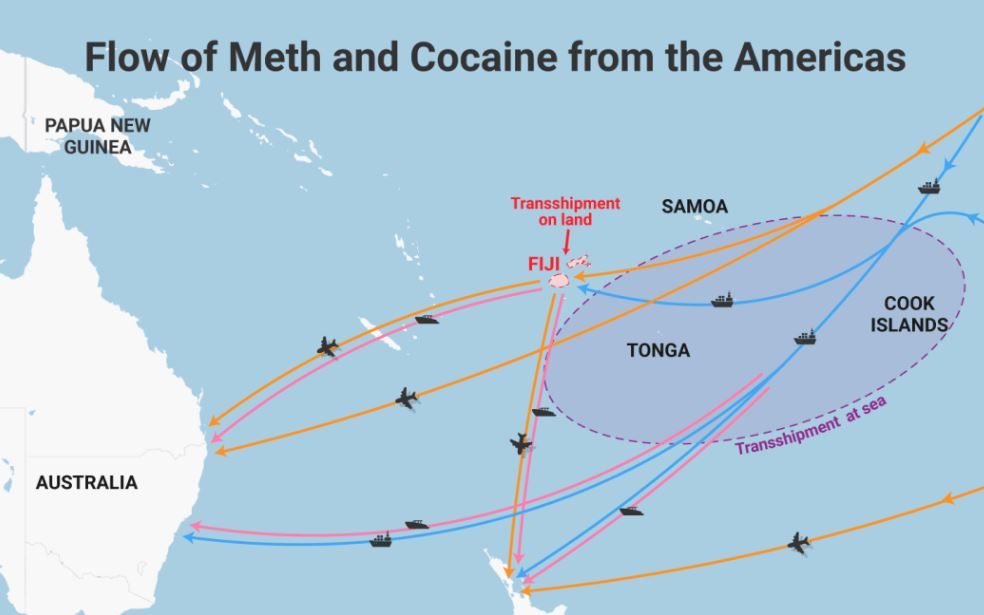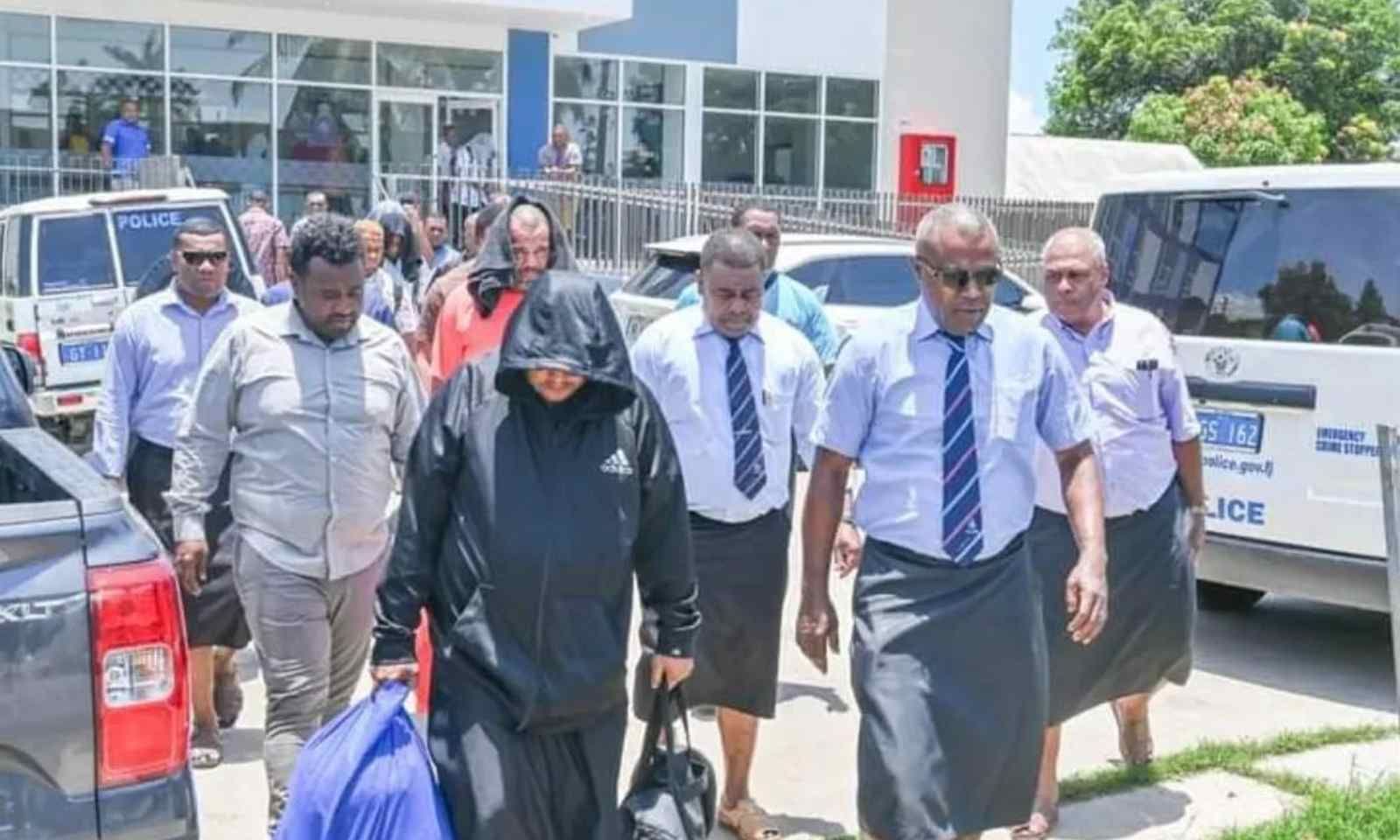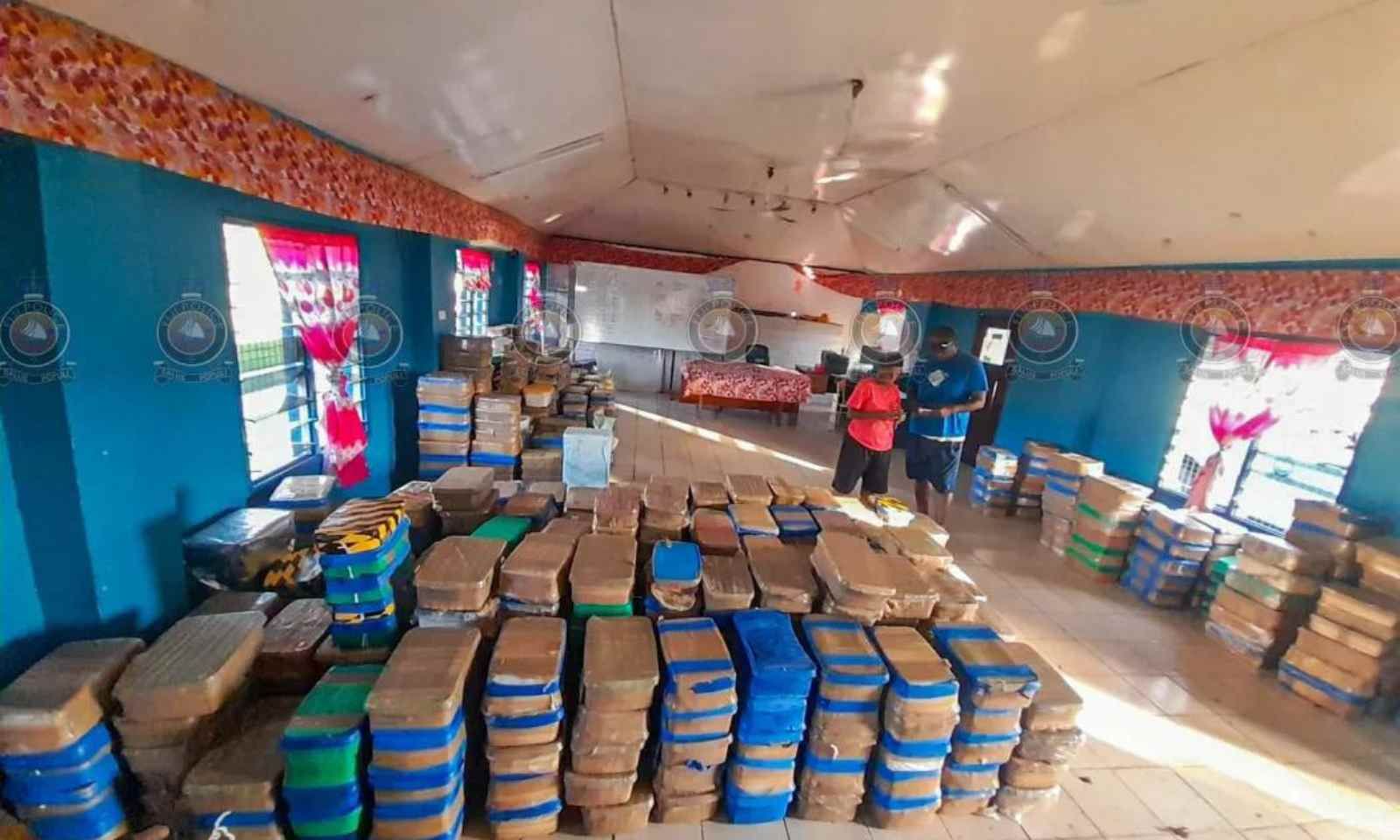

More than four tonnes of methamphetamine was seized by police in Fiji in January.
Photo/supplied
‘Concerted effort’: NZ urged to help in Fiji's war against drugs
There are disturbing reports emerging from Suva as the authorities grapple with a methamphetamine crisis that has infiltrated the villages, schools and even the police sworn to protect the public.



Pacific leaders humbled by recognition in New Year 2026 Honours

Pacific Bites: South Auckland weighs in on the top dishes of 2025

‘Love is justice, lived out loud’: Reverend Wayne Toleafoa honoured for service


Pacific leaders humbled by recognition in New Year 2026 Honours

Pacific Bites: South Auckland weighs in on the top dishes of 2025
Fiji is fast becoming a transit point and hotspot for the trafficking and smuggling of illicit drugs and a Pacific health expert warns of a downward spiral of society if the problem is not addressed.
Fiji-born New Zealand-based GP, Dr Api Talemaitoga, says the latest media reports of a methamphetamine crisis in his homeland warrants a ‘concerted effort’ by the community, government, and international partners including New Zealand to help curb Fiji’s drug dilemma.
“It's a big problem for Fiji if it is not looked after because of the criminal element, not just with health, but people get addicted and so they start the criminality that happens to try and get access to this drug,” he told Pacific Mornings’ William Terite.
Watch Dr Api Talemaitoga's interview below.
Talemaitoga’s calls follow Fiji Prime Minister Sitiveni Rabuka’s request to the United Nations to help with an HIV/AIDS epidemic that has been reportedly fuelled by the country’s ‘spiraling' meth trade.
Talemaitoga said this would affect Fijian society badly economically and the country's reputation as a tourism destination.
“Drugs are destroying the very fabric of the Fijian community, of village life, of chiefly systems, the respect and reciprocity that people have for each other.
“It's really sad. I believe it is a real crisis that needs a concerted effort by the community, the government, and Fiji's international partners because it needs to be tackled on several levels.”
Fiji is located 2600km north of New Zealand, with a population of just over 900,000.
In January, Fijian police seized a record 4.8 tonnes of methamphetamine concealed in containers in the tourist town of Nadi.
Police said Fiji was being used as a transit for drug trafficking and drug smuggling in New Zealand, Australia, Asia, and the Americas.
Police also said in a statement that they were working with the Australian Federal Police and the Pacific Transnational Crime and Coordination Centre.
Raids were carried out in Nadi with 13 people charged in connection with the record drug haul that has an estimated street value of FJ$2 billion (NZ$1.68b).
A bail hearing has been set for 7 June in the High Court in Lautoka.

Police also said they believed the exchange of the meth shipment was made outside of Fiji's Exclusive Economic Zone, and that the packages were delivered on a barge.
Talemaitoga said he believed in the resilience of the Fijian people and that the community could have the answers.
"It's really tough. It has to be a wraparound support, trying to attack it at the source. So that's where the international partners come in.
“Where is the source of all these drugs? There are local contacts that have to be looked at and dealt with, but if the source dries up, that is one of the big things that will help this ‘nation of zombies’, as it has been labeled.”
In a four-part series on the meth crisis in Fiji, TVNZ reported last week that the island nation was also facing widespread corruption in its police force.
“Officers are being asked to tamper with evidence, steal meth, and in some cases are heavily involved in the dealing network.
“1News has been told by high-level sources that a tonne of meth, linked to the Nadi meth consignments seized earlier this year, is missing. Dealers have revealed how easy it is to bribe the police.”
A concerned Talemaitoga told Terite that local solutions were also important.
“Fiji does not have a drug rehabilitation facility. So that needs to be seriously looked at as to how we use the strength and the resilience of the community to help the local people.
“It's tough because once you get people on it, they are hooked. And so not only is it destroying people's lives but unfortunately, you and I know that it's the people who have no employment, no income.

Thirteen people have been charged by police over the illegal drugs seized in Fiji in January. Photo/supplied
“Poverty probably plays a lot here, youth who are probably separated from their families and live more in urban centres. I'm just trying to paint a picture of who these zombies might be.
"And that's where I think the local infrastructure of people in villages, the respect for the chief of the village needs to be emphasised, and needs to be worked with the local people.
“Not only is it an unsafe drug, a harmful drug really, but it's the fact that it gets people hooked and addicted. And I think cutting off the source needs to be a concerted effort with Fiji and its international partners.
“I think there are a lot of other reasons why youth are choosing drugs. It's the bright lights or maybe trying something different because their lives might not be fulfilled in their own minds.
“They're usually of the lower socioeconomic group that may not necessarily have a job, that may not necessarily have a good education, maybe living in overcrowded housing in the more urban areas. So I guess it's looking for something in life that is exciting for them.”
With reports of the drug users also sharing needles and syringes, Talemaitoga warned that infectious diseases could spread “and so we'll probably see that getting worse before it gets better.
“Not just HIV, but hepatitis is also a drug-borne illness, which, yes, there are medications available now, but it becomes a lifelong chronic condition once you get infected with it, which is a real tragedy. And if you continue to use and share those needles, you will be reinfecting other people as well.
“I think this is something that's been brewing out of the surface and all of a sudden, it's come to light - more the extent of the tragedy of this drug use. And that's where I think Fiji's international friends in law enforcement need to step in and help.
The number of HIV/AIDS cases in Fiji has nearly doubled over the past 12 months, with the Health Ministry warning of an uphill battle.
In March, Fiji's Health Minister Dr Atonio Lalabalavu told parliament that case numbers had jumped from 245 in 2022 to more than 415 last year.
Only 40 per cent of patients have access to antiretroviral therapy, he said adding that since the first reported case in 1989, HIV cases in Fiji had increased by about 10-fold.

A tonne of the meth seized by police in January is reportedly missing. Photo/supplied
Talemaitoga said it's not just Fiji. "Some of these drugs come via the Kingdom of Tonga and their target markets are in New Zealand and Australia. And so it needs a concerted effort by Fijians, by the government, civil society in Fiji, and international partners.”
With Covid-19 still being present, Talemaitoga also warned of the risks of using drugs, meth in particular.
He said the big problem with drugs was the way they were taken - “you know, if it's taken orally, if it's snorted, if it's injected, then you're already spreading or at risk of spreading infectious diseases.
“If you're using shared syringes and needles, then you've got an effect on the immune system. There's still a lot of infectious diseases around. I alluded to Covid still being present. Fiji is not clear about it. And so with your immune system lower from taking the drugs, you're probably not eating as well or keeping well hydrated so you're prone to catching these infectious diseases and spreading them.
“They are probably affecting people in poverty who may not have access to employment, income, and health so they will not seek out health services in Fiji and end up getting sicker and probably, you know, it could be quite harmful and tragic for them and their families.
“But it affects people at multiple levels. And the tragedy, as I said, it's not just like a cold or a chest infection that you can take things for to get better. The two negative things, one, it gets you hooked for life, unfortunately, being really strong if you get one of those infectious diseases of hepatitis B and HIV, then you inherit a chronic illness for the rest of your life.”
With no drug rehabilitation facility in Fiji, Talemaitoga called for the use of community district nurses, and doctors who already work in the community to help those affected.
“It's the wraparound services using culturally appropriate protocols and the infrastructure that is available in Fiji within the community, within the villages is very important, but we have to try and cut off the source, which Fiji's international law enforcement partners like NZ can assist.
“They know where this drug is coming from so working with the international law enforcement partners to stamp out or minimise that is key.
“Fiji relies on tourism quite a lot so a concerted effort from everyone involved is needed. I feel sorry for my friends and family back in Fiji. I hope they look after each other and use the Fijian principles of veikauwaitaki [caring/hospitable] and veilomani [love/respect] to stay well.”
The New Zealand and Australian governments have been approached for comment.